Sound of Charlotte Blog
Clarinetist Allan Rosenfeld’s Top 10 Orchestral Bass Clarinet Solos
January 13, 2021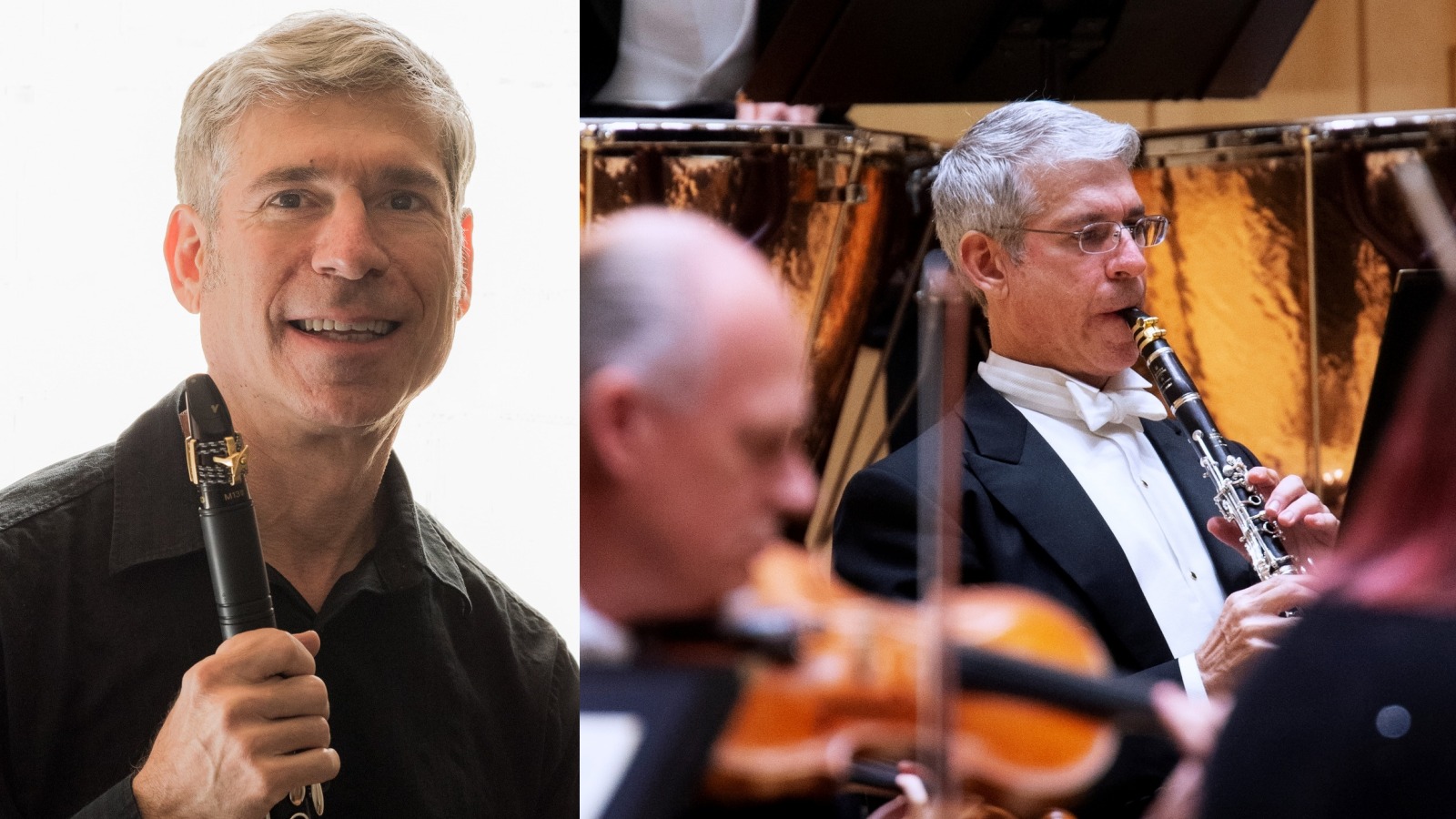
In a previous blog post, I featured a list of my favorite orchestral clarinet solos. While a significant amount of my in the orchestra is spent playing the clarinet, there are many occasions when you can also catch me at CSO concerts performing on the bass clarinet. The bass clarinet is often featured for its ability to fortify and color the woodwind section. Nevertheless, there are some spectacular passages that spotlight the appeal of this magnificent instrument as a solo instrument in its own right.
Here are my Top 10 Orchestral Bass Clarinet Solos:
10) William Schuman's Symphony No. 3 (Part II, Toccata)
9) Gershwin's Concerto in F (Second movement)
8) Tchaikovsky's The Nutcracker (Dance of the Sugar Plum Fairy, middle of Pas de Deux)
7) Shostakovich's Symphony No. 8 (Fifth movement)
6) Wagner's Tristan und Isolde (Act II, scene 3)
5) Wagner's Die Walkure (Act II, scene 2; Act III, scene 3)
4) Stravinsky's Rite of Spring (Opening)
3) Tchaikovsky's Manfred Symphony (First movement)
2) Mahler's Symphony No. 6 (First movement)
1) Khachaturian's Piano Concerto
The Classical Series: Reimagined
January 6, 2021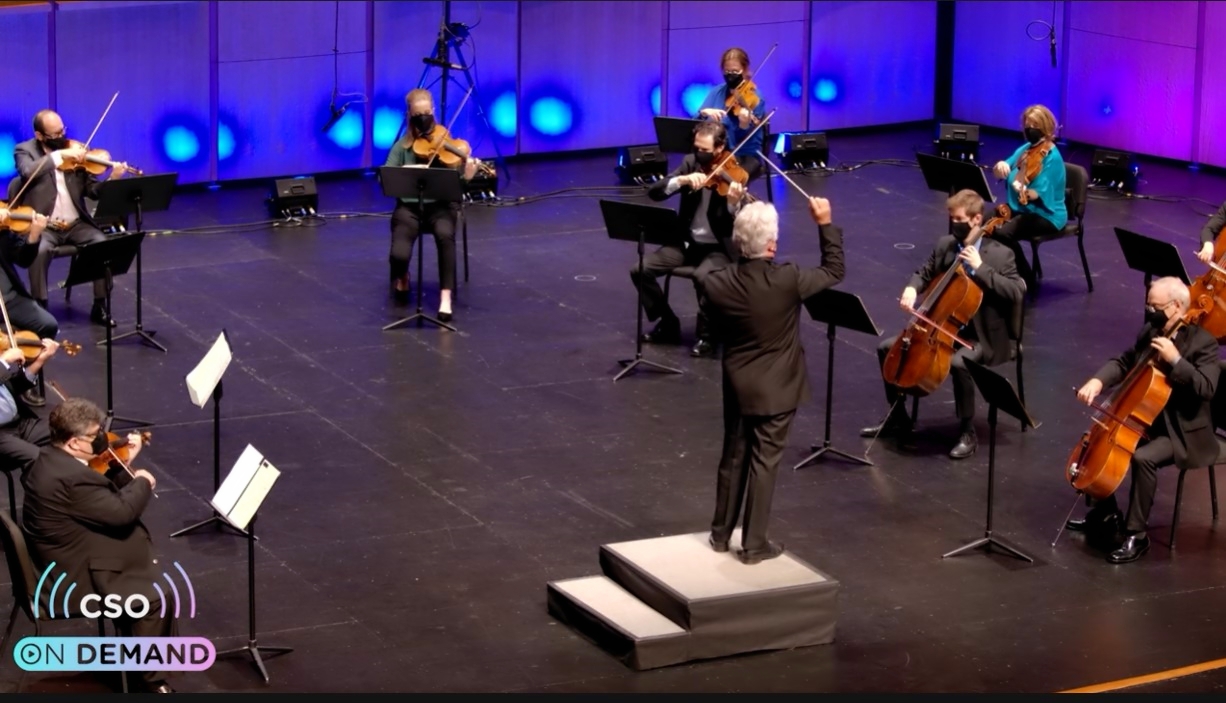
Your Charlotte Symphony's virtual concerts have already been viewed by thousands of people and received widespread acclaim, with a critic from Classical Voice North Carolina observing that, "the Charlotte Symphony's [virtual concert series] demonstrates the persistence and resilience of the arts and artists and the organization's commitment to its musicians, as well as its listening community."
We're reimagining what it means to serve as your orchestra during the pandemic, and it's been thrilling to find new and innovative ways to bring the music directly to you and your families.
But we're just getting started! The New Year brings four new virtual concerts.
Highlights include:
- The return of Music Director Christopher Warren-Green conducting works by Elgar, Holst, Mozart, and more.
- The continuation of our celebration of Beethoven 250 with performances of his First and Seventh Symphonies.
- Concertmaster Calin Ovidiu Lupanu and Principal Trumpet Alex Wilborn take center stage for concerti by Mendelssohn and Hummel, respectively.
- Contemporary works by Jessie Montgomery and Leonardo Balada, led by Resident Conductor Christopher James Lees.
We're Here to Help
We want you to make sure that everything is working for you once you're settled in to watch our concerts. Please check out this blog post for information on how to access the CSO's virtual concerts. We also have step-by-step instructions for how to stream the concert from a variety of devices, including your computer, phone, or smart TV.If you would prefer to speak to someone, please contact Patron Services at 704.972.2000 or ticketoffice@charlottesymphony.org.
Read more
What I have learned (and am learning) as a professional musician
December 22, 2020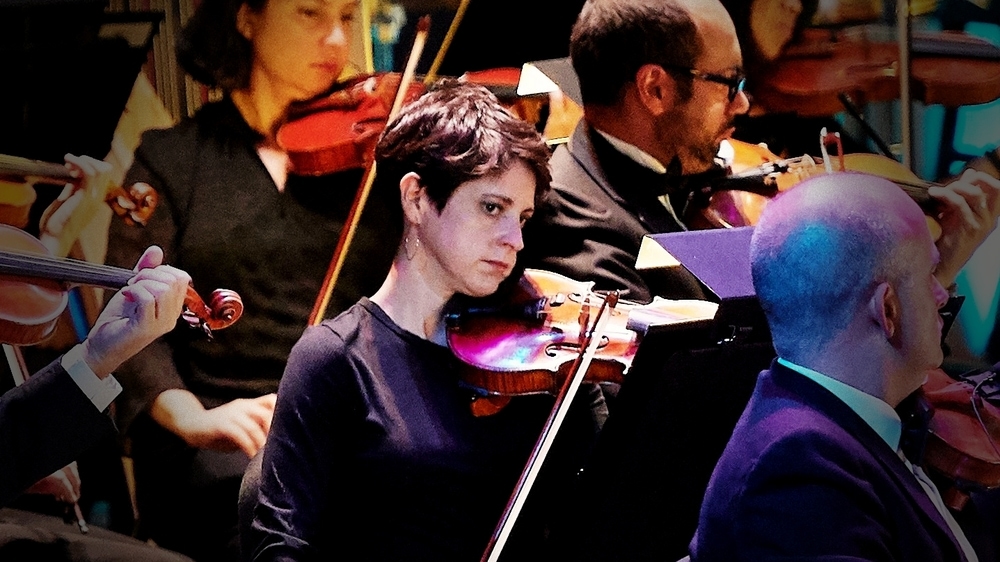
By Violinist Jenny Topilow
As an orchestral player and violinist, like all musicians, I have a long list of compositions that I turn to time and time again for emotional and aesthetic fulfillment on a personal level; works that are particularly beautiful and/or satisfying to me. These pieces include the late Beethoven Quartets, Stravinsky's "Petrushka," Prokofiev's "Romeo and Juliet," Shostakovich Symphony No. 10, the Bartok Quartets, Debussy's "La Mer," Caroline Shaw's "Partita for Eight Voices," and Andy Akiho's "21," to name a few.
It's funny to think, however, that the most memorable and important moments that I have had as a member of the Charlotte Symphony really have nothing to do with my list of favorite works. The most poignant experiences of my tenure as a musician are exactly that, experiences; experiences that have deeply moved me, changed my perception, taught me, connected me to those around me, and have brought me closer to my community.
Major side note: I'm not a huge fan of the term "classical music" as I feel that "classical" is simply a descriptor of a specific era in Western music (i.e. Mozart, Beethoven, and Brahms). I would never discount the absolute brilliance of those composers, yet the breadth of what is coined as "classical music" encompasses so much more than what the antiquated term has to offer. Maybe "orchestral music" and "art music," etc., could serve our purposes better.
But, I digress, because even if I personally believe it's outdated, I still call myself a "classical musician," since the label itself is the most recognized tag for what I do -- interpret and play music written by other people. In that sense, we are more like actors; we are not creators, we are not artists (in my opinion), but we have devoted ourselves to creators and artists. So at its core, even though it is vast, every orchestra on the planet plays music from a finite pool of works. That being said, what I have learned is that it is not the music (alone) that makes an orchestra, but the community that it is part of. The Charlotte Symphony belongs to all of Charlotte; every member of the community should feel ownership of the organization and all arts organizations throughout the city. It's this sense of ownership that builds commitment, connection, and those beautiful, profound experiences through music that are transcendent, beyond the notes on the page. All art for all people.
It would be remiss of me to not give personal examples of music plus circumstance making for meaningful experience. Here are two:
- The CSO accompanied the Morehouse College Glee Club in a performance of Atlanta based composer Joel Thompson's "Seven Last Words of the Unarmed," a work that uses the liturgical format of Haydn's "Seven Last Words of Christ" to honor and humanize black men unjustly murdered, namely Michael Brown, Trayvon Martin, Oscar Grant, Eric Garner, Kenneth Chamberlain, Amadou Diallo, and John Crawford. It is a sobering piece that reminds us of how powerful art can be when inspired by, and dedicated to, relevant and pertinent issues. The experience of the performance connected everyone in the room through a shared understanding of the necessity of the message and the emotion of that message being delivered through song by those directly affected by the theme of the work.
- Last season the CSO started a series called CSO Off the Rails, where smaller ensembles curate programs to be played at Snug Harbor, a local club/bar/music venue and Charlotte staple. Essentially standing room only with a small stage about three feet off the ground, these shows are really an immersive and interactive experience, bringing what we do to an audience that wouldn't necessarily seek out music at a concert hall. The success of the series, the energy surrounding it, and the electric atmosphere in the room during performances has solidified in my mind that "classical music" is completely accessible to everyone when we remove the formality and actively engage with the community.
The path to playing professionally, by CSO Violist Viara Stefanova
November 30, 2020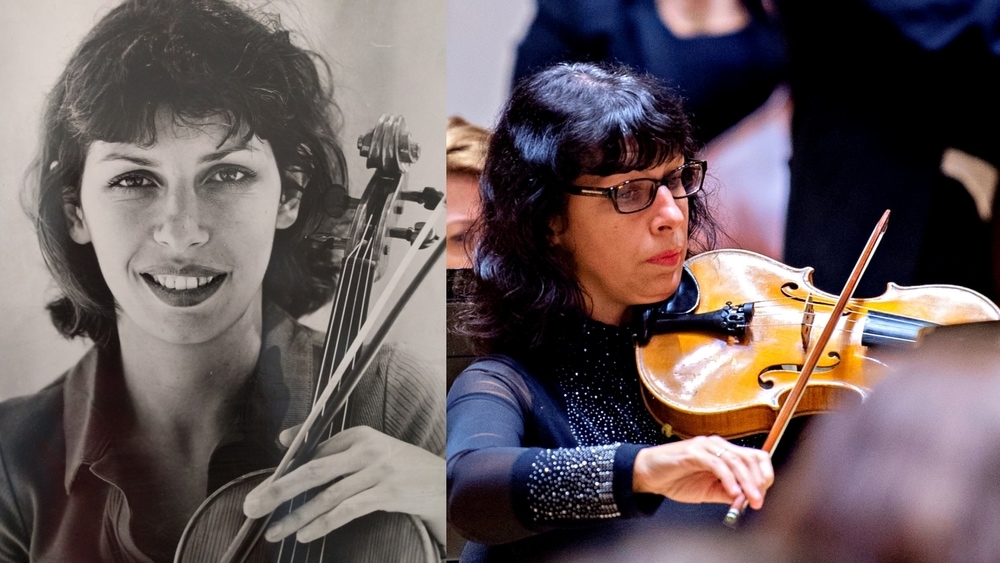
Making music isn't like listening to music. It isn't like anything else in life. It is something very special for all musicians. It's our life, our call, and our love. Experiencing the power of playing on stage is unlike any other experience or feeling. There is so much meaning in the melodies and harmonies we play; it's a world of constant discoveries of the human's state of mind, heart, and soul. Once we've been on stage, we can never forget it, and we keep doing it no matter how many challenges we might face.
It all starts in our childhood. At first we're curious and excited about the instrument we pick. We learn a couple of songs and then some harder songs, and it's all good and still exciting. Later on, when we are ready to play not just songs, but some classical repertoire, the real challenge appears. Sometimes practicing seems tedious, tiring, and frustrating. Many times it felt like we would never get it right, no matter how hard we tried. Day after day, after hours of practicing, we would find out how much perseverance, patience, and determination we would need to achieve a higher level of understanding and perform the music we love. The more we played though, the more difficult it got and the more we knew that our love for music would take us to an unimaginable beauty. Before we learned any piece of music, we would have to study the different styles, forms, and structure of the music.
Once we were in college we continued to learn how to practice efficiently and wisely; what to do to avoid the sore muscles and physical pains from over practicing. We would continue with even more patience and would keep pressing on, since the professional auditions are tough. We had to compete with hundreds of fellow musicians for one spot in the orchestra. We had to stay healthy emotionally after we failed an audition and learn how to deal with it.
The more challenging it got, the more fascinated we were, and the better we understood the incredible genius of the composers. Every chord, every harmony is there for a purpose. The complicated works by composers like Brahms, Mahler, or Tchaikovsky are difficult not only technically but also musically. A performer needs to be experienced and mature to understand the music and perform it the way it's meant to be performed. The simple melodies of the classical composers like Mozart or Beethoven are even harder to perform because it takes a world to achieve the lightness and simplicity of their music. Every note is so exposed, every slip of the finger can be heard. It all takes a practice-until-perfection approach. And even though we can't be perfect, we continuously aim for it. There is no other way to play an exceptional work of art."The more we played though, the more difficult it got and the more we knew that our love for music would take us to an unimaginable beauty."
So, we do whatever it takes to bring to life the amazing music that influences people's lives; because we understand what a great privilege it is to perform works written by some of the most extraordinary minds born on this earth. Read more
Remembering Former CSO Bass Clarinetist Jim Ognibene
October 6, 2020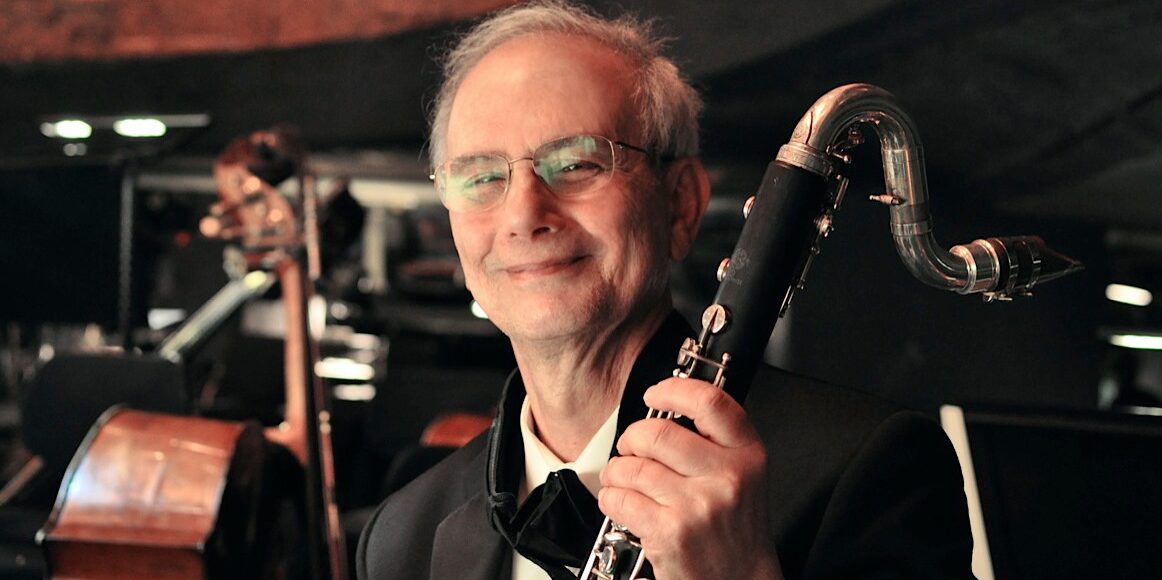
By Gene Kavadlo, former principal clarinetist of the Charlotte Symphony
As the orchestra was rehearsing, the loud sound of a vacuum cleaner in the lobby was becoming increasingly annoying. Finally, the conductor asked his assistant, a rather diminutive fellow, to see if he could do something about it. Jordan went to the lobby. Suddenly there was a THWAP! and the annoying sound stopped abruptly. Without missing a beat, Jim said "Oh no, now we're going to have to get Jordan out of the bag." Anyone who knew Jim knew that he was the sharpest wit in the room. My children, now in their 40's, always referred to him as "our Jim." Our Jim succumbed to a 17 year battle with cancer on August 11, 2020.
I first met Jim in our student days at Indiana University during the 1960's. After college Jim served four years in the military as a member of the US Marine Band and White House Orchestra, and I went on to become the Principal Clarinetist of the Charlotte Symphony in N.C. One day I got a call that started with "You probably don't remember me..." It was Jim, and of course I knew exactly who he was. He had taken an audition with the Charlotte Symphony and won the job - beginning a fabulous eight year relationship as colleagues in the same Orchestra. It was in the Charlotte Symphony that Jim started playing the bass clarinet. There had been an older gentleman playing, but his skills were declining. One day the instrument fell over as it was resting in its stand, and Jim declared that it had committed suicide.
When Jim won a job at the MET I had very mixed feelings. I didn't want to lose my dear colleague, but he certainly couldn't pass up a career move like that. Before leaving Charlotte Jim found out that one of his first assignments would be to play the basset horn obligato from Mozart's Clemenza di Tito. Jim had never played the basset horn, nor heard Clemenza di Tito. We listened to a recording in my living room (before YouTube days), and Jim burst out laughing. When I asked him what was so funny, he said "I'm so glad I get to play this at the MET before I play it someplace really important." Naturally, his performance several weeks later was superb. Thus began his 33 year tenure as Principal Bass Clarinetist with the Metropolitan Opera Orchestra. Jim's playing can be heard on numerous Grammy award winning Metropolitan Orchestra recordings, including Wagner's Ring Cycle on Deutsche Gramophone. He was also a member of the All-Star Orchestra made up of leading players from major American Orchestras. He served many summers in the Spoleto, Grand Teton, Bard, Napa Valley and Verbier festivals, and was an instructor at Julliard.
Former Principal Oboist of the MET, John Ferrillo, visited Jim a few days before he passed and played some beautiful oboe music for him. This is a story from John: "When Jim was stationed with the Marine Band in DC, he was dating an oboist. On a number of occasions he would make the 3 hour drive to Philly to bring her to her lesson with John deLancie, first oboist for the Philadelphia Orchestra. On one of those drives he needed to use the bathroom; when he asked permission, Mr. deLanci told him no.
"Years later, Mr. and Madame deLancie came to the MET. They were ardent opera fans. At the end of one of the performances, they met me at the gift shop. Before we parted company, he asked me who was playing the basset horn in Clemenza di Tito two broadcasts ago. I was delighted - 'funny you should mention him; that was my close friend, Jim Ognibene.' 'Well...let me tell you - that was some of the finest woodwind playing I have ever heard!' 'Why, Mr. deLancie, that's Jim coming through the doors right there.' Mr. deLancie insisted on taking Jim aside and spoke avidly to him for a number of minutes. For Jim it was one of the greatest accolades he'd ever received."
Later that night, I called Jim. Of course, I knew the line was coming. "I thought the time was right for me to ask if I could use his bathroom now."
A thank you to arts educators, from CSO Musicians
September 17, 2020This week we're celebrating Arts in Education Week, a national celebration recognizing the transformative power of the arts in education. As professional musicians, Principal Clarinetist Taylor Marino and horn player Andrew Fierova have been profoundly affected by their music education. We asked them to share their stories.
Taylor Marino, Principal Clarinetist:
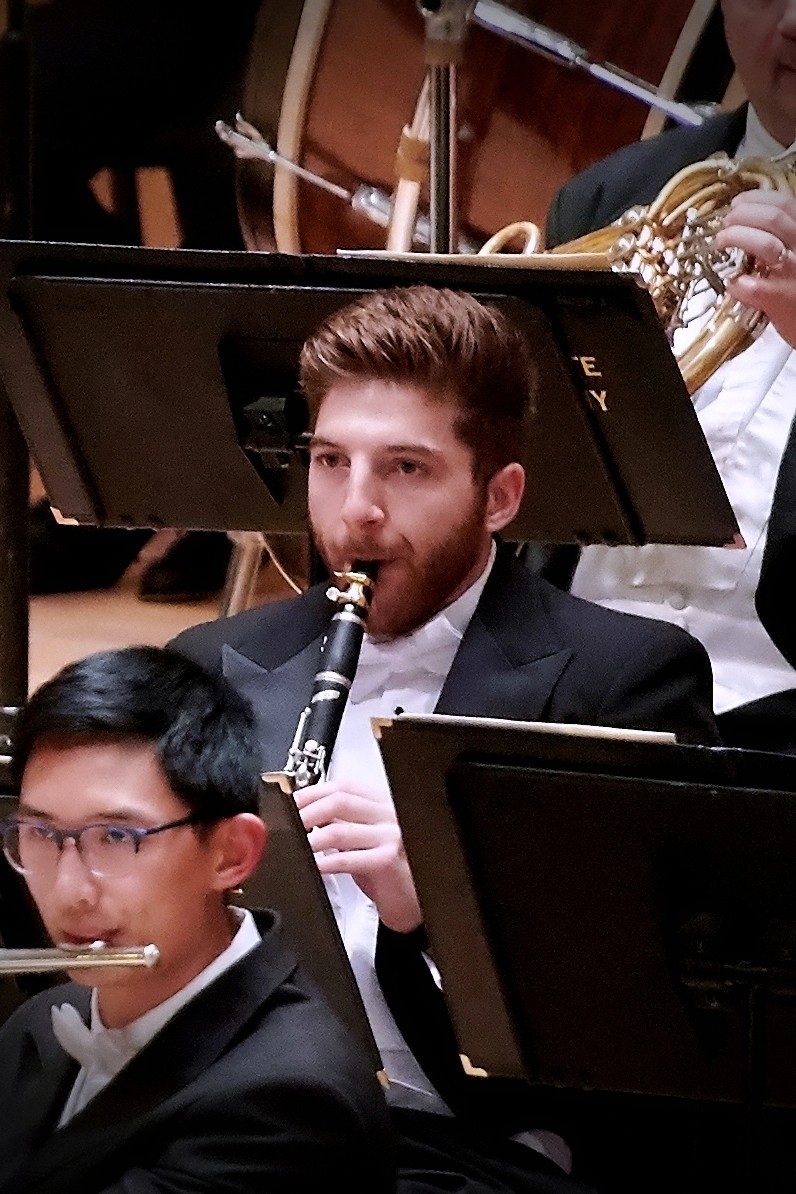 |
"Having grown up in Charlotte, I owe this city and its music educators a great deal of gratitude for supporting me and inspiring me to pursue a musical life, which ultimately led me back home to be a part of the Charlotte Symphony. My middle school band director at South Charlotte Middle School, Carl Ratliff, had a profound influence on me and taught me to pursue excellence, stay focused, and enjoy the beauty that music has to offer. I think of him often, and his great playing and musicianship as a saxophonist was inspiring as well. |
My private clarinet teachers, Jim Ruth and Michael Hough were also very important figures in my life. Jim Ruth started me on clarinet at the Music and Arts store and taught me great fundamental exercises that jump started my proficiency in music. Michael Hough, who is band director at Providence Day School and plays with the symphony often, really fine-tuned my playing and prepared me for the rigorous journey that a life in music would be.
I am beyond grateful to be back in my hometown sharing music with the community that has given me such wonderful musical support."
Andrew Fierova, Horn:
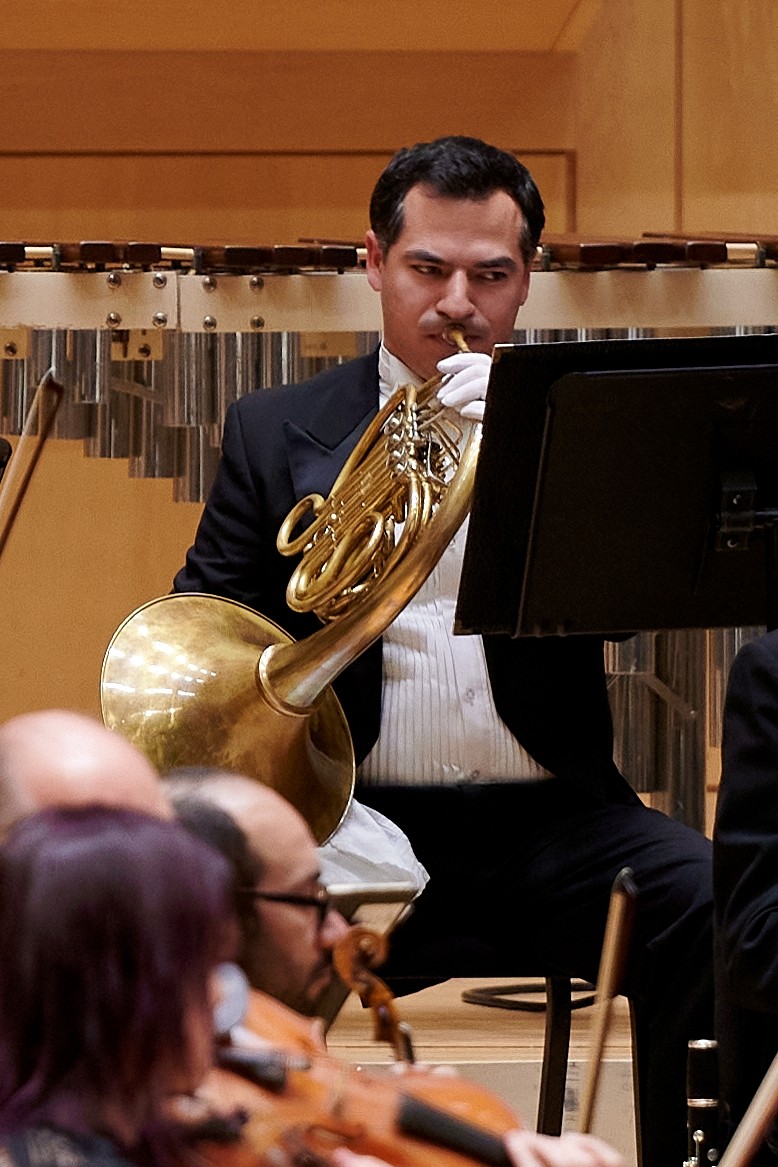 |
"Music was an important part of my public schooling from elementary through high school in South Carolina's School District 6. It led me to discover a love of performing that set me on my current career path. I loved singing with our elementary school chorus, especially when the songs had corresponding motions. My second elementary school provided the opportunity to join a recorder ensemble, where I learned my first wind instrument. When I got to middle school, I started learning the horn. Band in middle school provided a confidence booster, as I found something that I was truly good at. This helped me to succeed in the rest of school and also find my friend group. |
Dorman high school had a very well-supported music program and nice facilities. I was given the opportunity to perform in multiple ensembles, from orchestra to jazz band, as well as outside opportunities like honor bands. These continued opportunities solidified my desire to become a performer. Without the amazing band directors that helped me along the way, I would not be a member of the Charlotte Symphony today!" Read more
Meet Your CSO’s Newest Musicians
September 1, 2020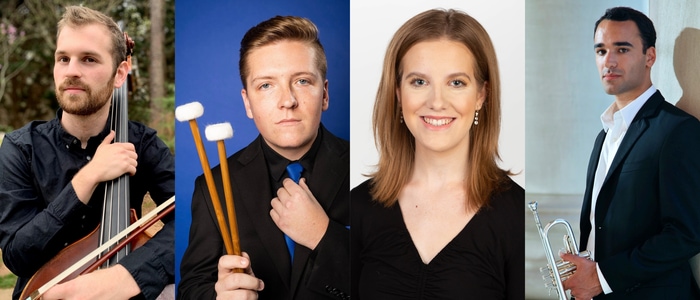
This season, you'll notice a few new faces in the orchestra! We caught up with Judson Baines, Jacob Lipham, Alaina Rea, and Gabriel Slesinger to welcome them to the CSO and learn a little more about who they are.
Judson Baines, Assistant Principal Double Bassist
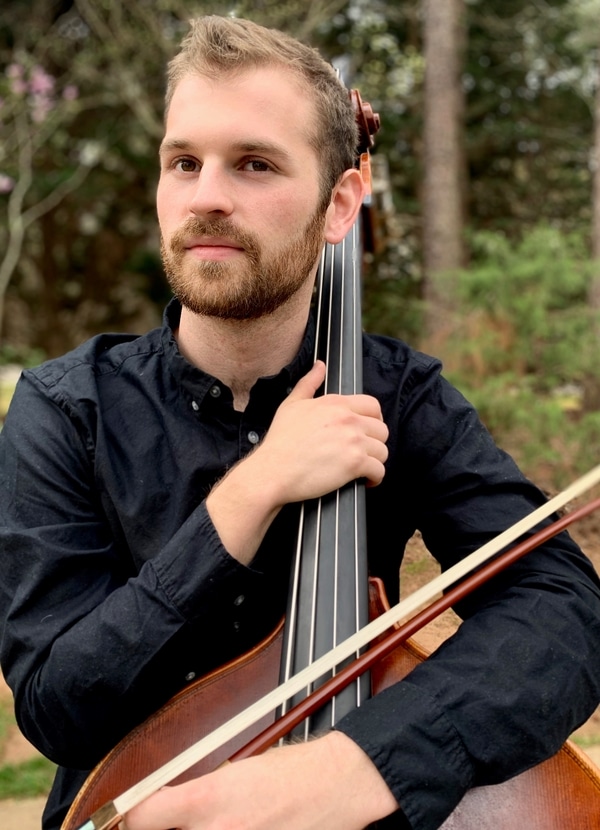 |
Where did you grow up? I was born in Wilmington, NC and grew up in the Raleigh area. I've spent a considerable amount of time in the mountains of western part of the state, as well as the coast, enjoying the merits of living in North Carolina throughout my life! What do you look forward to most about living and working in Charlotte? I think it's really awesome that I can be in my home state and have my family easily visit me and vice versa, so I'm really looking forward to that. |
What else should we know about you?
I would love the audience to know that I am genuinely so excited to join the CSO and play music with other people again after a long hiatus due to the virus!
Learn more about Judson.
Jacob Lipham, Principal Timpanist
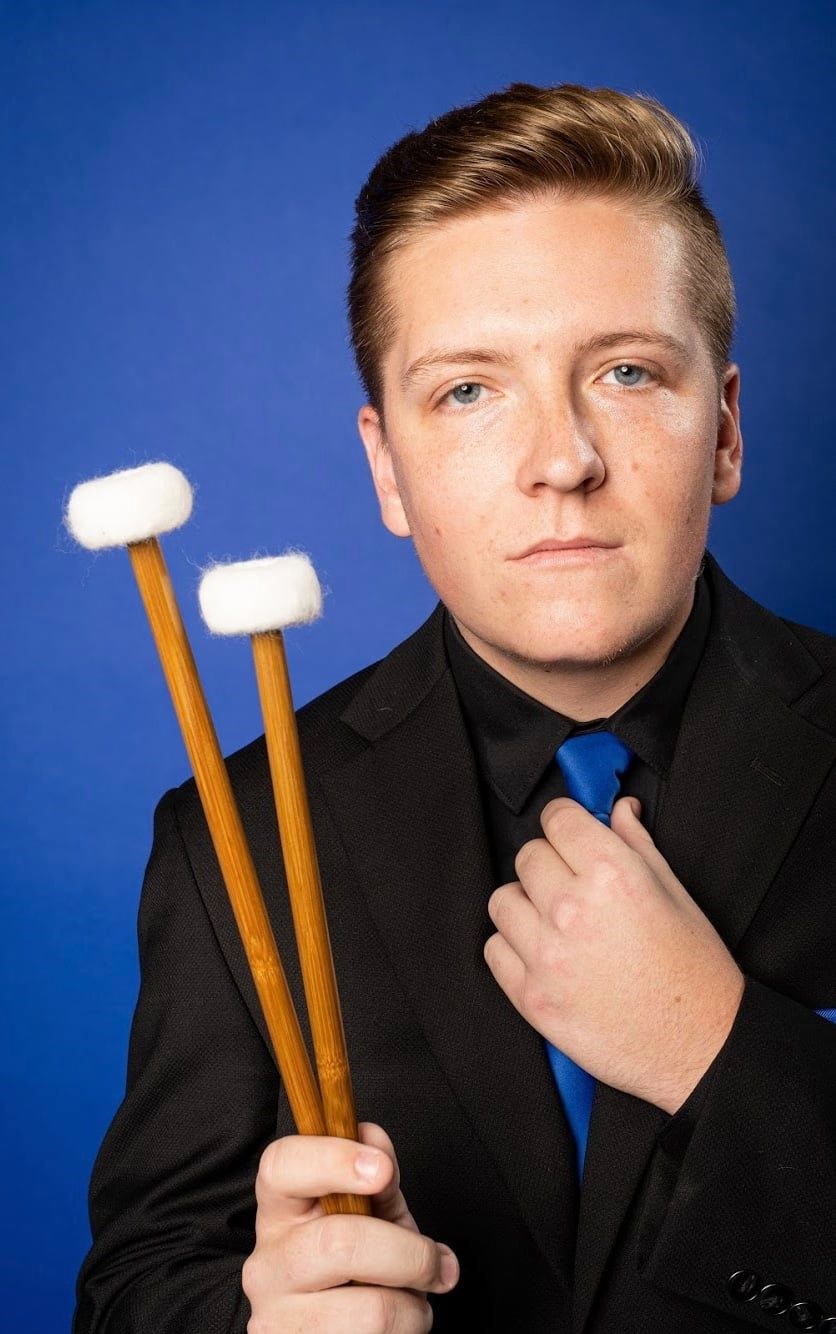 |
How were you introduced to music and the timpani? I began studying piano at a young age, around five, and really enjoyed it. When I got to middle school I decided to join the band. When it was time to pick my instrument for the band, the array of percussion instruments in the back of the room looked very enticing to play! Many of the kids wanted to play percussion, so my middle school band director prioritized students who had studied piano to join the percussion section. Thankfully I had studied piano, so I was able to begin playing percussion, and the rest is history! My decision to pursue orchestral timpani happened in my collegiate studies. I received my Bachelor's Degree in Percussion Performance at The Jacobs School of Music at Indiana University. |
While at Indiana University, I was introduced to a diverse range of percussion styles and fields of work. The experience I found the most excitement and joy through was playing timpani in the orchestra. The diverse sounds, colors, and roles the timpani can provide within an orchestra, in addition to the thrill of creating music beside colleagues, was more than enough to convince myself to narrow my pursuit to an orchestral career.
What do you look forward to most about living and working in Charlotte?
I moved to Charlotte recently, and I am very excited to explore and get to know the city more. The culture seems vibrant, diverse, and welcoming. I can't wait to explore the vast restaurant and brewery scene, and check out the local sport teams! I am so thrilled to be a new member of the Charlotte Symphony Orchestra, to begin making music with my new fantastic colleagues, and seeing you all from the stage hopefully soon!
Learn more about Jacob.
Alaina Rea, Assistant Principal Violist
 |
How were you first introduced to the viola? I started playing the violin at the age of 4 in the Suzuki method. During high school, my teacher suggested that I learn the viola. At first I reluctantly agreed but ended up loving it and decided to make the switch. What are you looking forward to about being part of the Charlotte Symphony? I am most looking forward to making music with talented colleagues and exploring different parts of the city. |
What do you do for fun when you're not practicing or performing?
Outside of music, I enjoy hiking, cooking, and spending time outside.
Learn more about Alaina.
Gabriel Slesinger, Third/Associate Principal Trumpet
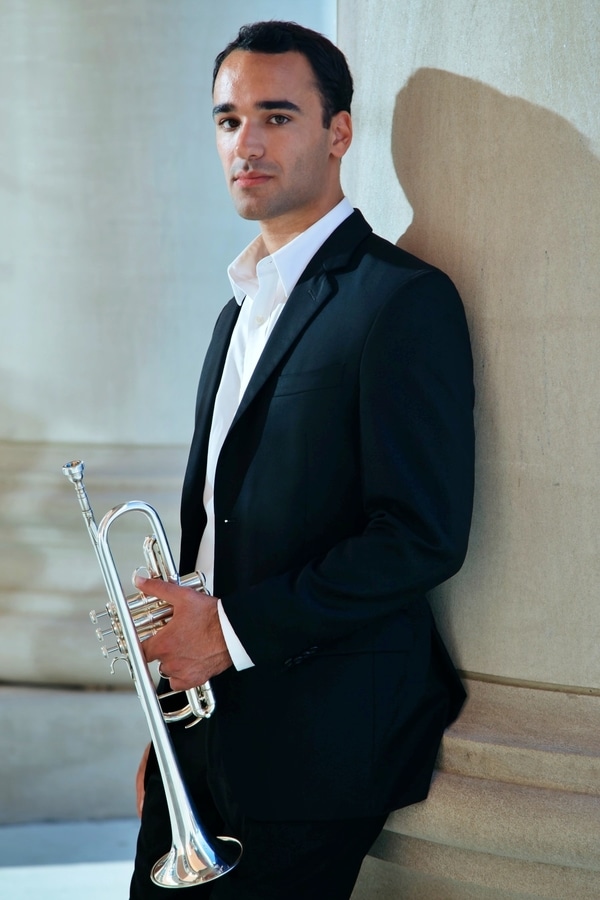 |
How were you introduced to music and the trumpet? My parents both value music and it was important to them that my siblings and I all learn instruments. My two older sisters played the piano and my older brother played the violin. My earliest musical memories are of hearing them practice every day, overhearing their lessons and recitals, and listening to the classical station on every car ride. As the youngest, I think I picked the trumpet because I wanted my instrument to be louder than theirs. My parents are fans of Louis Armstrong and Herb Alpert, so I had a little bit of awareness of these great trumpet players before starting. |
I really like the people in this orchestra. There is a very high level of playing here, but it's also like a family. The musicians here really stretch themselves and take risks in concerts. I love closing my eyes during a rest in a concert and pretending I'm an audience member, and I can't wait to be onstage again. The first concert back is going to be absolutely electric. I'm happy to live in a city where people value live music. The Charlotte Symphony has a wonderfully supportive audience.
Do you have any hidden talents?
I can name all the US presidents in less than 10 seconds.
Learn more about Gabriel. Read more
CSO Musicians Perform in Virtual Colorado Music Festival
August 20, 2020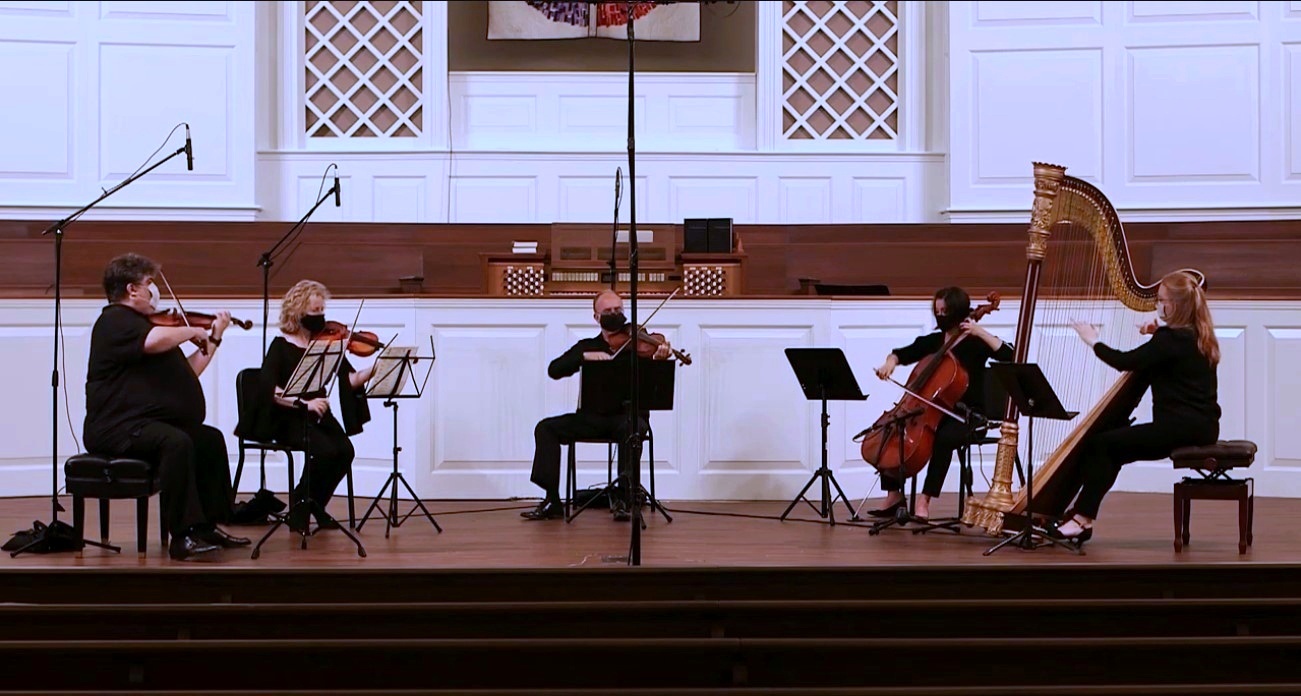
This summer, a number of the Charlotte Symphony's talented musicians participated in the 2020 virtual Colorado Music Festival.
Concertmaster Calin Lupanu was joined by Associate Concertmaster Joseph Meyer, Second Violinist Monica Boboc, Cellist Marlene Ballena, and Principal Harpist Andrea Mumm to perform Ravel's Introduction and Allegro and Dvořák's Terzetto in C Major, Op. 74 (I. Introduzione: Allegro ma non troppo & II. Larghetto).
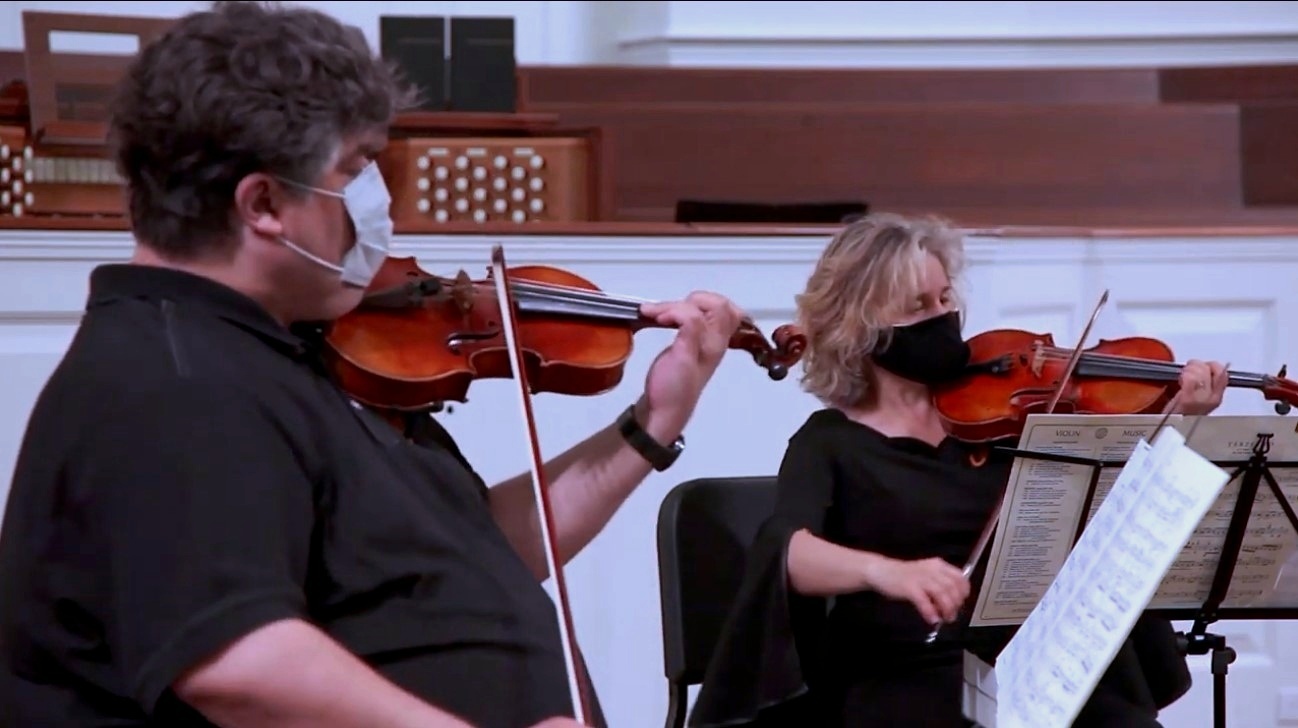 Read more
Read more
CSO Musicians Go Totally '80s!
January 21, 2020We asked CSO musicians to "turn back time"... and, boy, did they deliver! With its distinctive fashion, slang, and music, the 1980s was definitely the raddest decade in history. Take a blast to the past with these old-school cool photos!
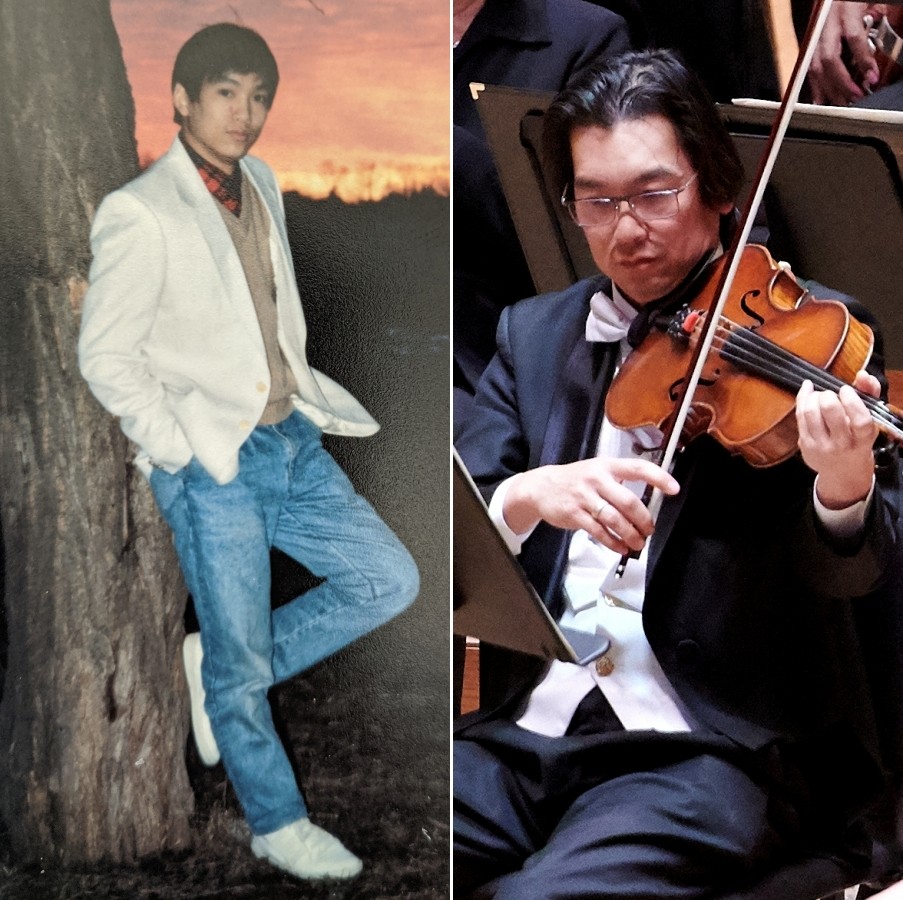
Violist Ning Zhao
Ning immigrated to the U.S. to further his music education at Kent State University in 1986. This photo was taken during his first year. With this white jacket and sneaker combo, Ning shows that he definitely knows as much about fashion as he does about music - like the back of his hand.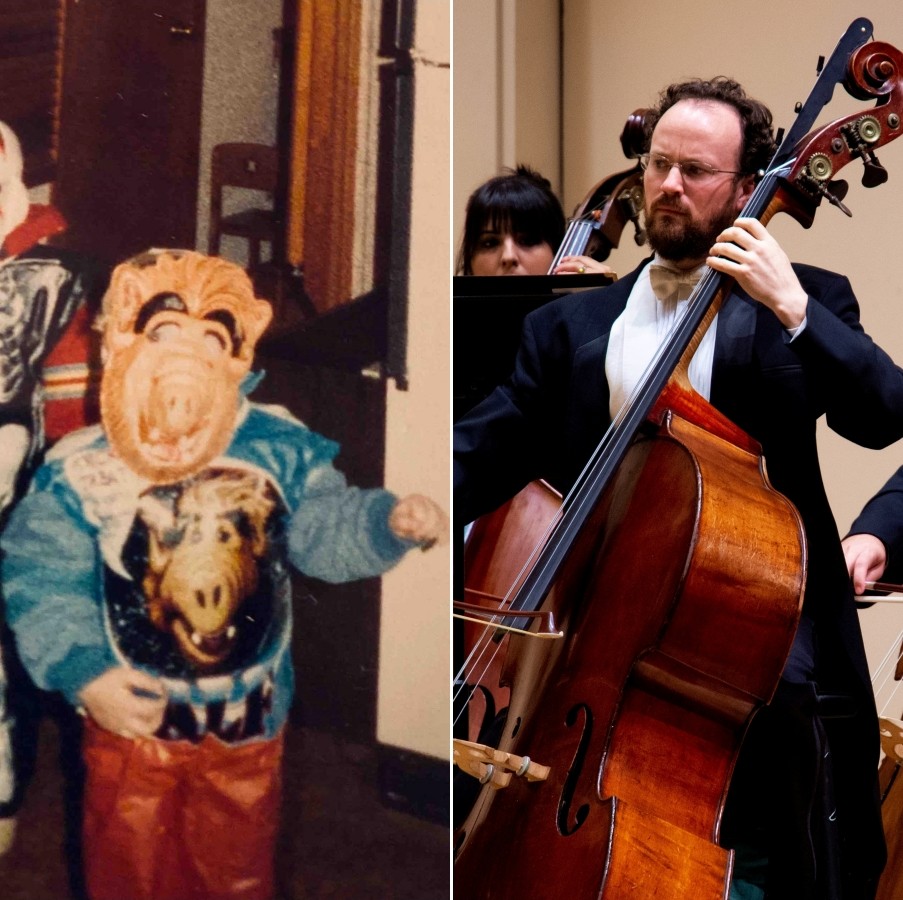
Acting Assistant Principal Double Bassist Jason McNeel
Jason may have been young in the '80s, but he definitely had his finger on the pop culture pulse. On Halloween of 1988, Jason was repping one of the most iconic characters of the decade: Alf. He definitely proved his love for the extraterrestrial by featuring him in his outfit not once, but twice.Evidently, I loved Alf! ~ Jason McNeel

Violist Nancy Marsh Levine
If there is one thing the '80s is known for, it's volume. This photo from Nancy's wedding in 1989 definitely exemplifies that trend. The amount of sleeve on her dress is beyond impressive. Modern-day bridal fashion really isn't what it used to be!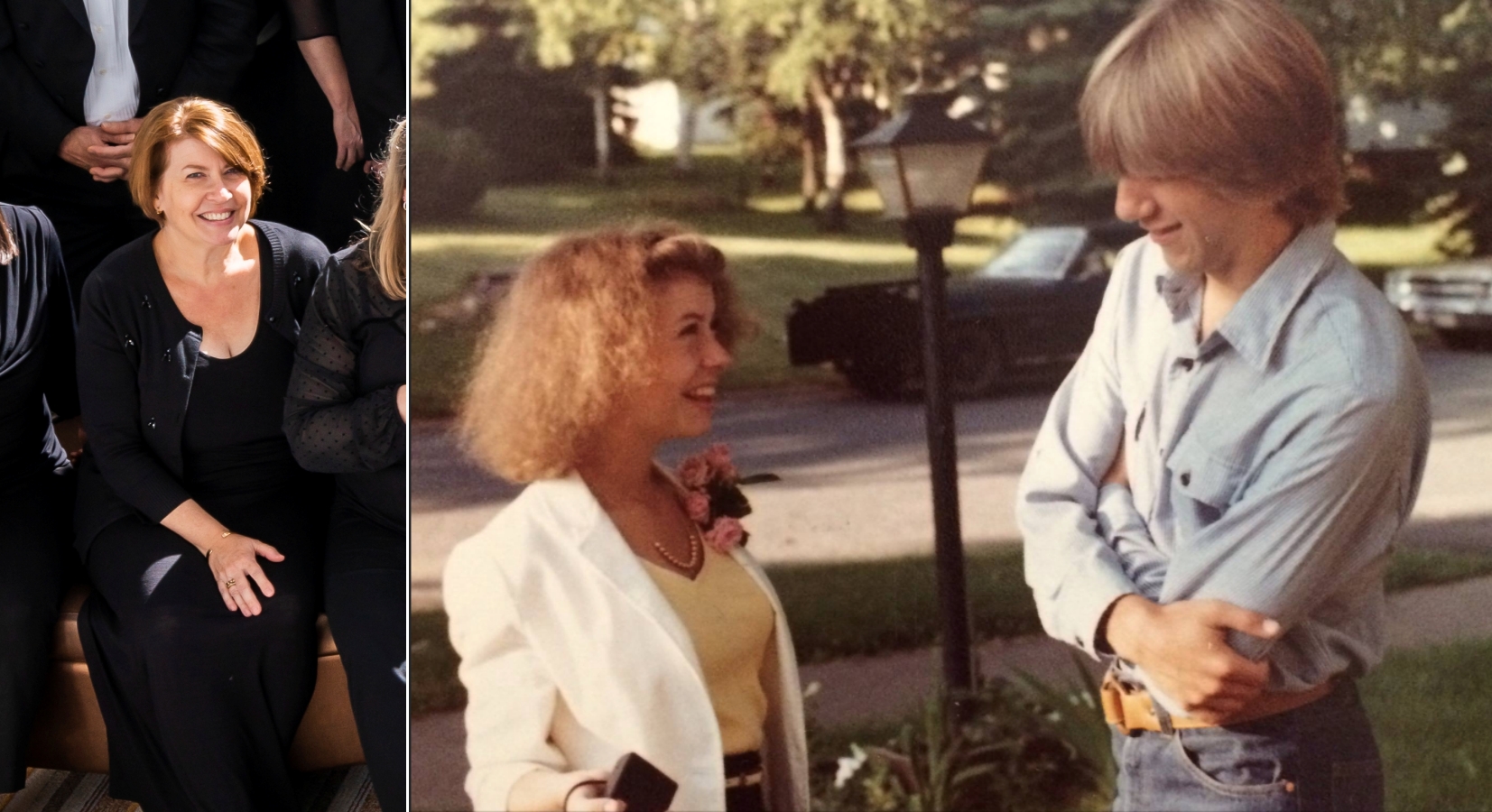
Violist Ellen Ferdon
As hard as it may be to believe, this is not a still from a John Hughes film. This photo was taken in 1982 of Ellen and Jeff Ferdon, just before their wedding. As impressive as the fashion and hair are in this photo, the only thing we can focus on is the adoring look they're sharing.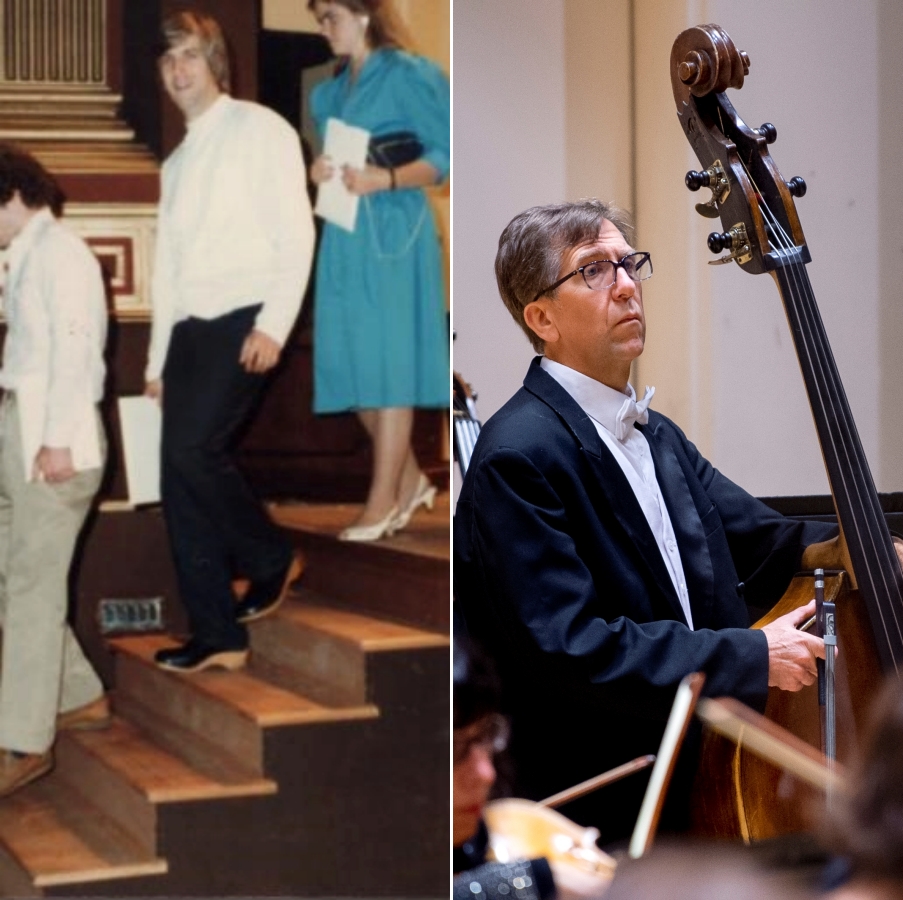
Double Bassist Jeffrey Ferdon
This photo from 1984 shows Jeff graduating from University of North Carolina School of the Arts. Jeff claims he "had zero interest in clothes at the time," but judging by that sleek white button-up shirt and voguish clogs, we don't believe him at all. Finding inspiration from MTV's hottest music videos, Jeff's hair evolution included both the infamous mullet and even a foot-long rat tail. We can only hope to see a revival of one of those looks on stage! Read moreFather and daughter share the stage at Stars, Stripes and Sousa
October 25, 2019Violinist Jenny Topilow has a special connection to our upcoming Stars, Stripes and Sousa concert on Nov. 15 & 16: her father is the guest conductor! Find out in our interview below what it's like for Jenny to see her dad on the podium, and how Carl Topilow creates his patriotic clarinet for this concert.
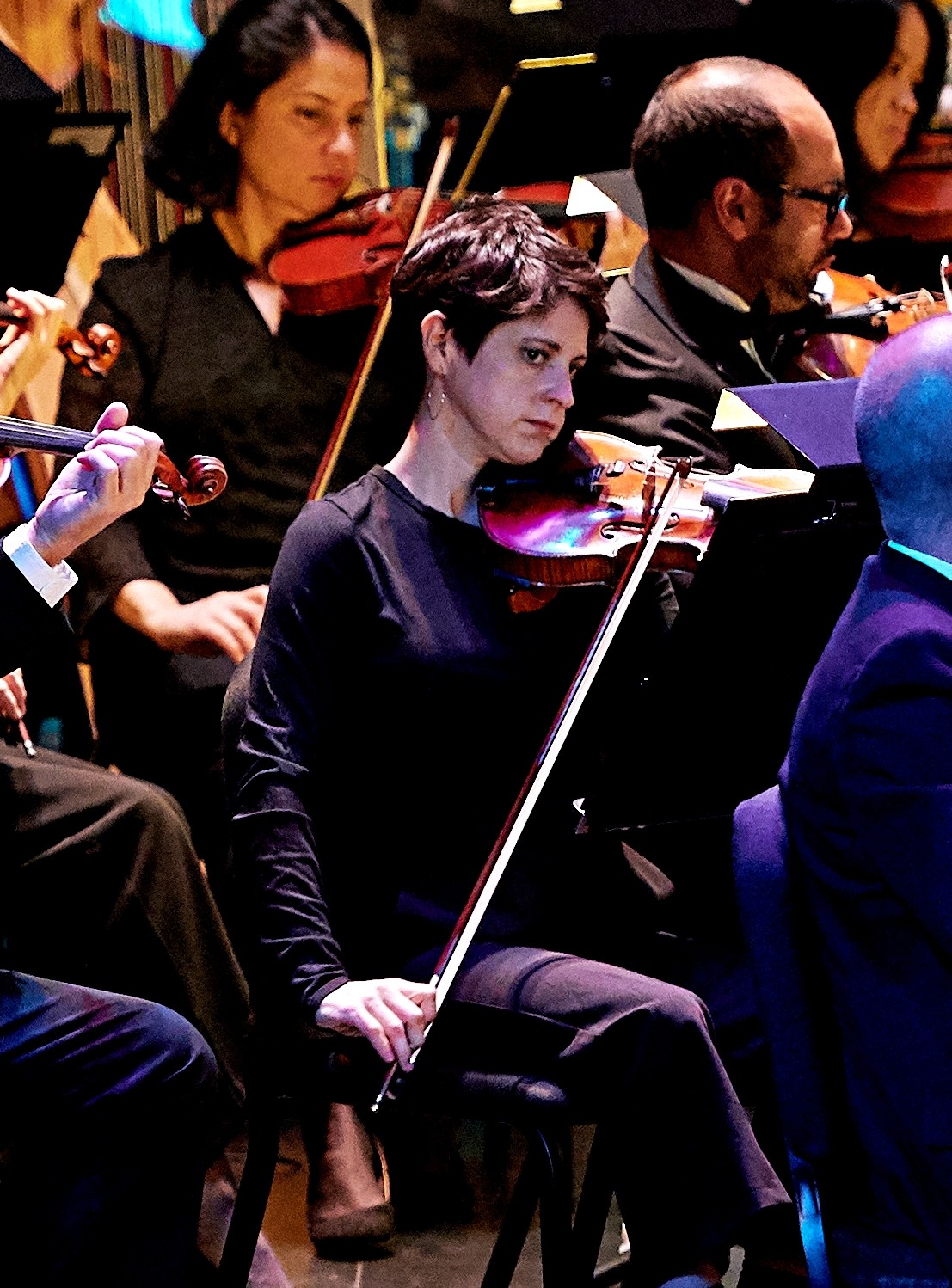 |
Jenny, what's it like to have your father on the podium as your conductor? Have you worked together like this before? JT: My Dad was my primary conductor when I was 18-22 years old. During that time, I wouldn't say we "worked" together as much as I was a student learning from him as a teacher, which he's great at. He did give me a B in conducting class [at the Cleveland Institute of Music], though (he was probably being generous!). Since becoming a member of the Charlotte Symphony, I have worked with my Dad many times. Often it's just us playing duets (with him on the clarinet), but also in [an orchestral setting] a few times, too. |
I'm very proud of my dad and his amazing career, and it is special when he is on the podium, but he's very cognizant about not treating me any differently when we are in a professional setting. Maybe he'll point out that I'm his kid and he's excited to have me in the band, but then it's down to business. As he says "I've worked with hundreds of violinists, and you're definitely one of them."
Carl and Jenny, what inspired you to choose a career in music?
CT: My love of music and my desire to pass this passion on to other people as teacher and performer was my inspiration to make this a full-time profession.
JT: I started violin at age three after seeing Itzhak Perlman on Sesame Street (a surprisingly common story!). It's been simply amazing to share the stage with him recently.
My dad being a conductor and my mom being a ballet dancer, they basically had the 16th sized violin waiting for me in the closet. I was pretty talented and practiced pretty diligently, but as a professional musician and a teacher at a conservatory, my dad knows just how hard it is to have a successful career in music, and never pushed me to go into it. He didn't exactly stand in my way, but he made sure I knew how competitive it is.
When I won my job with the CSO, he was the first person I called and he was the one person who cried happy tears with me, because he really understands how rare it is to win a job and how hard musicians work to prepare for auditions.
Is anyone else in your family musical?
CT: My brother, Arthur, is an excellent jazz pianist. He's also a much-respected hematologist/oncologist. My younger daughter Emily enjoyed performing as violinist with her college orchestra for 4 years and is now playing with a community orchestra in Cleveland. I recently appeared as guest conductor with that orchestra, and it was very rewarding to perform together!
| JT: Like my dad said, my Uncle is a fantastic jazz pianist and my little sister plays the violin. My mom was a ballet dancer with Joffrey and the Metropolitan Opera in NYC before I was born and is a great lover of classical music (especially opera), and my stepmom, Shirley, is a professional tap dancer and also started the Cleveland Pops. Carl, this kind of patriotic concert is one of your specialties. How did that come to be? CT: These concerts do so much to instill a sense of pride and privilege to be living in the U.S. |
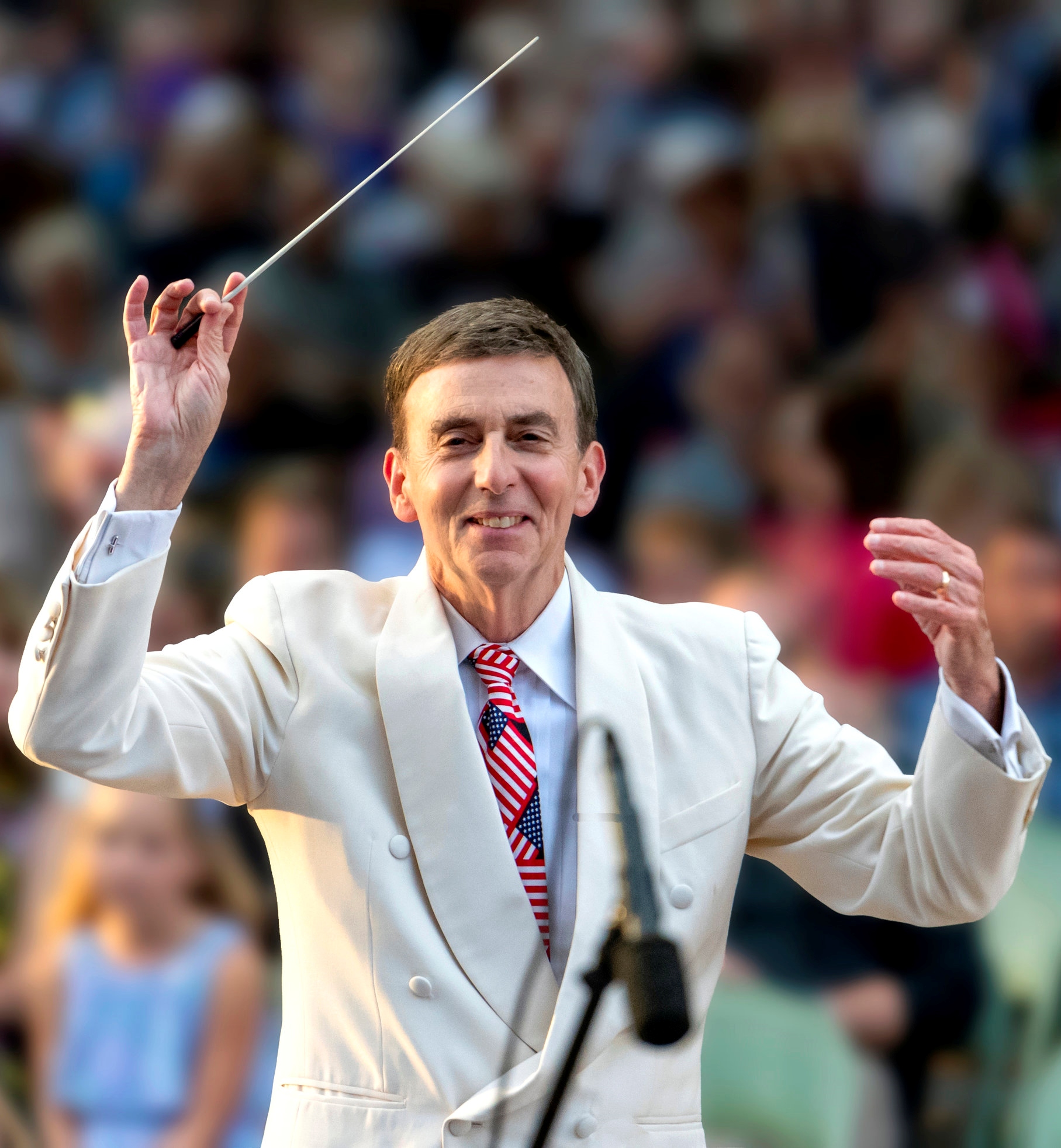 |
We hear you have a very patriotic clarinet... What's the story behind that?
CT: I have red, white, blue, and green clarinets, and can assemble parts of each to come up with multicolored clarinets. I always play the piccolo obbligato to the Stars and Stripes along with the orchestra piccolo players on a red, white, and blue clarinet. Read more
| Older Posts » |
Latest Posts
- MERGE: Symphonic x Electronic
- Heart of the Home Tour Returns
- Composer Spotlight: Nia Imani Franklin
- More Famous Than Mozart: Joseph Bologne, Chevalier de Saint-Georges
- Art in Motion: Rosalia Torres-Weiner Chosen to Design CSO Roadshow
- Announcing Kwamé Ryan as the Charlotte Symphony’s Next Music Director
- Photos: Charlotte Symphony Annual Gala and Concert
- Five Must-See Concerts of the 2023-24 Season
- 5 Pro Tips for the Best Summer Pops Experience
- A Preschool Performance Three Years in the Making







